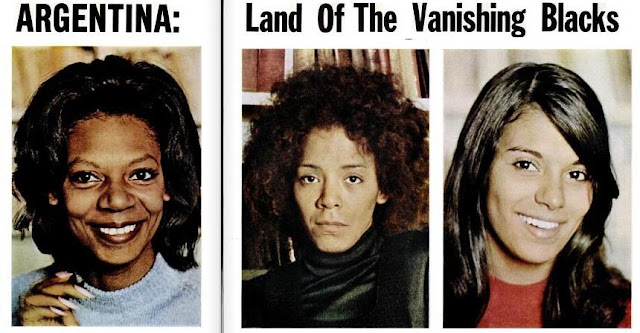I stood in the luxurious living room of the penthouse, glass in hand, surrounded by Morandi’s paintings and Picasso’s prints. To the sound of a small bell, from a private elevator the old writer and his middle-aged wife emerged. He was short and stout—a little fat, even, though you could see he hadn’t always been so—and he walked across the marble floor unsteadily, with the aid of a walking stick, and with the aid of his wife, a dark-haired, dark-eyed woman, taller than him, glamorous in her pashmina. My agent, who was also the old writer’s agent, introduced us. “Teju, meet Vidia Naipaul.”
The faint hiss of champagne being poured. The clink of glasses. Far below us was the obscurity of the East River and, beyond it, the borough of Queens, glimmering in the dark. In all that darkness was an infinity of information, invisible under the cloak of night. Vidia—please call me Vidia, he had said—whom the agent had told about my work on Lagos and New York, said, “Have you written about Tutuola?” I said, no, I hadn’t. “It would be interesting,” he said. I demurred, and said I found the work odd, minor. There was something in Tutuola’s ghosts and forests and unidiomatic English that confirmed the prejudices of a European audience. “That’s what would be interesting about it,” he said. “A reconsideration. You would be able to say something about it, something of value.”
“There’s a marvellous view from the roof,” our host said. “Vidia’s afraid of heights. He gets vertigo,” said Nadira, Lady Naipaul. And when the women had moved away, because I was nervous, because I wanted to show off a little for the master, I said: “Maybe we don’t all need the thrill of physical heights. Frank O’Connor writes somewhere that reading is another form of height, and a more perilous one.” “Oh?” Vidia said. “That’s very good.” And we were called in to dinner.
I write these words in London. August has ended. I am sitting on the enclosed upper deck of a kind of boat. The boat is an architectural folly that has been placed on top of the Queen Elizabeth Hall, as though it has been stranded after a flood. The sky is crisp and white, the sky which has returned to page one as it does each morning. Below, the busy little people begin to go about their day, inscrutable to the one who watches and unknown to themselves. London, from this peculiar vantage point, is precise as a print. Toy red buses cross and recross Waterloo bridge as though maddened into repetition. St Paul’s Cathedral leads white, the buildings across the skyline follow, white on white. The stone of London is white and pale, the sky is white and pale and beginning to intimate blue. Laden barges bring news of the world in the form of goods. Above all this I sit on a boat stranded in time’s river.
At dinner, in addition to Sir Vidia and Lady Naipaul, there was a well-known American actor and his third wife. There were Vidia’s editor, our agent and his wife, our host, and three other young African writers. The host’s family claret was served with dinner, served after a proud announcement of its provenance, and poured almost ritualistically. Such things are bound to disappoint, but this one was possibly the best wine I had ever tasted. And, buoyed by it, we began to toast V. S. Naipaul, who sat in his chair, bunched up in it, serene but a little tired, nodding repeatedly, saying, “Thank you, thank you,” with his characteristic bis, the repetition of language that was second nature to him. When three or four others had spoken, I gathered up my courage and said: “Vidia, I would like to join the others in celebrating your work”—though, in truth, the new book, called “The Masque of Africa,” ostensibly a study of African religion, was oddly narrow and stilted, not as good as his other voyages of inquiry, though still full of beautiful observation and language; but there is a time for literary criticism, and a time for toasts. I went on: “Your work which has meant so much to an entire generation of post-colonial writers. I don’t agree with all your views, and in fact there are many of them I strongly disagree with,”—I said “strongly” with what I hoped was a menacing tone—“but from you I have learned how to be productively disagreeable in my own views. I and others have learned, from you, that it is fine to be independent, that it is fine to go your own way and go against the crowd. You went your own way no matter what it cost you. Thank you for that.” I raised my glass, and everyone else raised theirs. A silence fell and Vidia looked sober, almost chastened. But it was a soft look. “Thank you,” he said. “I’m very moved. I’m very moved.”
This boat of which I am temporary captain is named the Roi des Belges. In 1890, Joseph Conrad piloted a steamship down the Congo on a boat with the same name. That journey became his inspiration for “Heart of Darkness,” a puzzling novella with nested narrators who unfolded a shadowed, strangled, brutal tale. He wrote it in the last year of the nineteenth century and published it at the beginning of the twentieth. So, this perch on which I sit above the Thames—the sky is blue now, the hundred-and-eighty-degree view of it full of long stratus clouds—this perch in which the city is exposed to me but I am not to it, is an homage to Conrad’s bitter vision. What might it mean when the native pilots the ship? What happens when the ones on the shore, numerous, unindividuated, are white?
“Heart of Darkness” was written when rapacious extraction of African resources by European adventure was gospel truth—as it still is. The book helped create the questions that occupy us till this day. What does it mean to write about others? Who are these others? More pressingly, who are the articulate “we”? In the “Heart of Darkness,” the natives—the niggers, as they are called in the book, the word falling each time like a lance—speak only twice, once to express enthusiasm for cannibalism, then, later, to bring the inarticulate report, “Mistah Kurtz, he dead.” Otherwise, these niggers, these savages, are little more than shadows and violence, either in dumb service on the boat, or in dumb, grieved, uncomprehending and deadly attacks on it from the shore. Not only is this primitive, sub-human Africa incoherent to any African, it is incoherent to any right-thinking non-African too. A hundred years ago, it was taken as the commonplace truth; it wasn’t outside the mainstream of European opinions about Africans. But we have all moved on. Those things are in past, are they not?
“For the first four days it rained.” Vidia’s face crinkled with pleasure. “You like that?” “I do, very much. It’s simple. It’s promising.” “I like it too!” he said. What I had just quoted was the first line of “The Enigma of Arrival,” his intricate novel about life in rural England. I value Naipaul for his travel narratives, for his visits to the so-called dark places of the earth, the patient way he teases out complicated non-fictional stories from his various interlocutors in Iran, Indonesia, India, and elsewhere. I like “A Million Mutinies Now,” “Among the Believers,” and the long essay “The Crocodiles of Yamoussoukro,” which, uncomfortable as they are in parts, also have the force of revelation. They are courageous not because they voice unpopular, and sometimes wrong-headed, opinion, but for the opposite reason: the books contain little opinion and are, rather, artful compressions of dozens of conversations. These are texts in which the natives, whomever they might be, speak for themselves and give an account, sometimes inadvertently, of their contradictory beliefs and ways of life, but also of their deep humanity. But it was “The Enigma of Arrival,” tirelessly intense, its intelligence fastened to the world of humans and of nature, that most influenced my own work, my own ear. I adore, still, its language, its inner music.
For the first four days it rained. I could hardly see where I was. Then it stopped raining and beyond the lawn and outbuildings in front of my cottage I saw fields with stripped trees on the boundaries of each field; and far away, depending on the light, glints of a little river, glints which sometimes appeared, oddly, to be above the level of the land.
In no small part, Vidia’s writing held my interest because he, too, after all, was one of the natives. He, too, was thought savage and, in his cruel term, half-made. He was a contradiction like no other.
Dinner was over. We were in conversation, Vidia, our host, and me. He was in a good mood, flattered by the attention. Our host brought some rare books from her collection to show us. They were special editions of Mark Twain’s works, and on the flyleaf of each was an epigram written by Twain and, below each, his signature. The epigrams were typical Twain: ironic, dark. And so we leaned over the old volumes, and Vidia and I squinted and tried to make out the words from Twain’s elegant but occasionally illegible hand. We were sitting side by side, and Vidia, unsteady, had placed a hand on my knee for support, unselfconsciously. I read: “By trying, we can easily learn to endure adversity. Another man’s, I mean.” Laughter. “To succeed in other trades, capacity must be shown; in the law, concealment of it will do.” More laughter. Vidia began, “You know, these remind me very much of…” Ever the eager student, I blurted out, “La Rochefoucauld.” “Yes!” he said, “Yes! La Rochefoucauld.” And with wonder in his eyes, the weight from his hand and arm bearing down on me, he turned his head up to our host, who stood just behind, and said, “He’s very good. He speaks so well, he speaks well.” And, turning back to me, “You speak very well.” In any other context, it would have felt like faint praise. But we’d drunk claret, we were laughing along to long-dead Twain, and I had managed to surprise the wily old master.
Our host drifted away, and Vidia and I continued chatting about this and that. Swift judgments came down. The simplicity in Hemingway was “bogus” and nothing, Vidia said, like his. “Things Fall Apart” was a fine book, but Achebe’s refusal to write about his decades in America was disappointing. “Heart of Darkness” was good, but structurally a failure. I asked him about the biography by Patrick French, “The World Is What it Is,” which he had authorized. He stiffened. That book, which was extraordinarily well-written, was also shocking in the extent to which it revealed a nasty, petty, and insecure man. “One gives away so much in trust,” Vidia said. “One expects a certain discretion. It’s painful, it’s painful. But that’s quite alright. Others will be written. The record will be corrected.” He sounded like a boy being brave after gashing his thumb.
The party was ending. I said, “This was not what I expected.” “Oh?” he said, some new mischief in his eyes, “And what did you expect?” “I don’t know. Not this. I thought you’d be surly, and that I’d be rude.” He was pleased. “Very good, very good. So you must write about this. You must write it down, so that others know. That would be good for you, too.” The combination of ego, tenderness, and sly provocation was typical.
Finally, after about twenty minutes, Nadira came for her husband. The hand lifted itself from its resting place on my knee. This benevolent old rheumy-eyed soul: so fond of the word “nigger,” so aggressive in his lack of sympathy towards Africa, so brutal in his treatment of women. He knew nothing about that. He knew only that he needed help standing up, needed help walking across the grand marble-floored foyer towards the private elevator.
The city below. At certain heights, you get vertigo, but you also see what you otherwise might not.
Teju Cole is a photographer and writer. His novel “Open City” was published last year. This essay emerged from the project “A Room for London.”
Photograph by Alberto Cristofari/A3/Contrasto/Redux.
 h/t
h/t  h/t
h/t 









